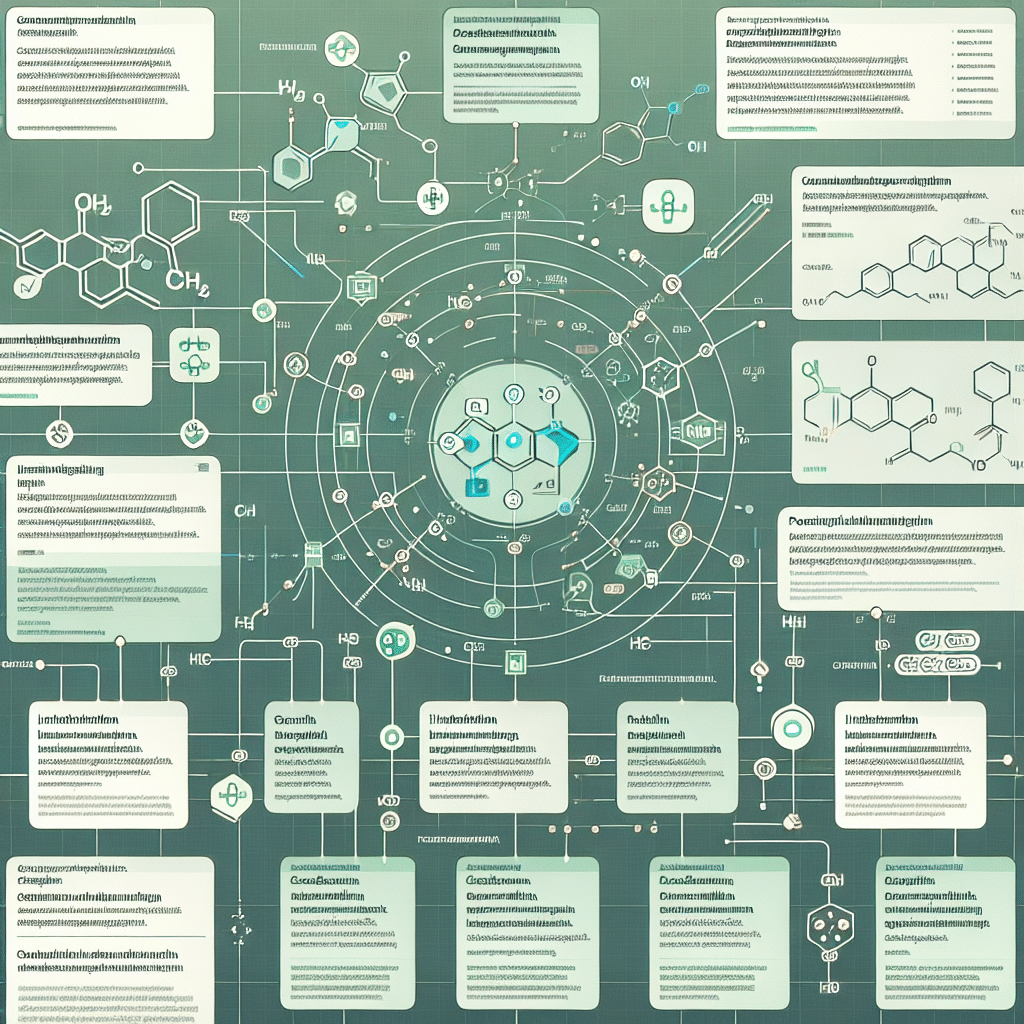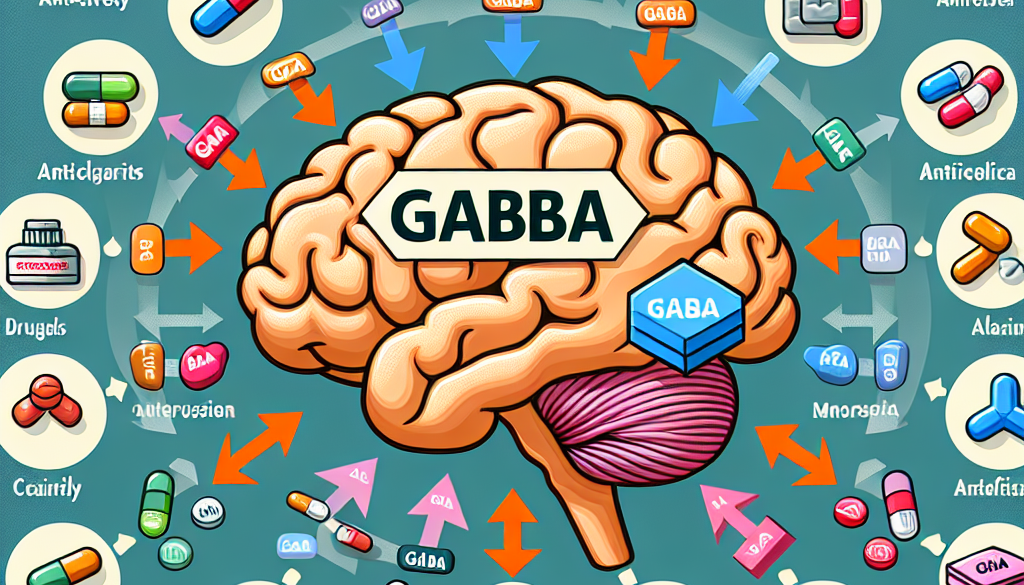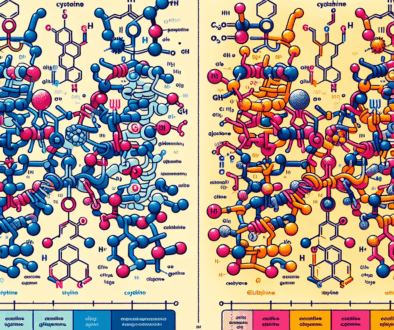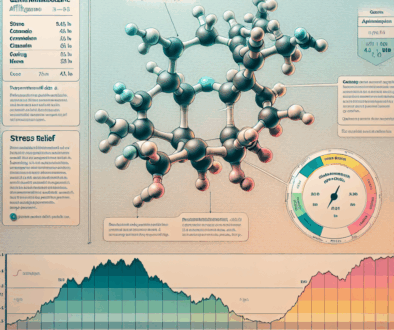Gamma-aminobutyric Acid Drug Interactions
-
Table of Contents
- Gamma-Aminobutyric Acid (GABA): Understanding Drug Interactions
- Understanding GABA’s Role in the Nervous System
- Common Medications That Interact with GABA
- Factors Influencing GABA Drug Interactions
- Potential Risks and Side Effects
- Case Studies and Clinical Evidence
- Strategies for Managing GABA Drug Interactions
- Conclusion: Navigating GABA Drug Interactions with Care
- Enhance Your Health with ETprotein’s Premium Protein Products
Gamma-Aminobutyric Acid (GABA): Understanding Drug Interactions

GABA, or gamma-aminobutyric acid, is a naturally occurring neurotransmitter that plays a crucial role in regulating neuronal excitability throughout the nervous system. In the human body, GABA functions as the main inhibitory neurotransmitter, helping to balance neuronal activity and prevent overstimulation. Due to its calming effect on the nervous system, GABA has become a popular supplement for those seeking to manage anxiety, stress, and sleep disorders. However, like any compound that affects the brain, GABA can interact with various medications, leading to potential health risks or reduced efficacy of treatments. This article delves into the complexities of GABA drug interactions, providing valuable insights for both healthcare professionals and patients.
Understanding GABA’s Role in the Nervous System
GABA’s primary function is to inhibit nerve transmission in the brain, counteracting the excitatory effects of neurotransmitters such as glutamate. This balance between inhibition and excitation is essential for proper brain function, affecting mood, sleep, and cognitive processes. When GABA levels are disrupted, it can lead to neurological and psychological disorders, including epilepsy, anxiety, and depression.
Common Medications That Interact with GABA
Several classes of drugs are known to interact with GABA or its receptors in the brain. These interactions can either enhance or diminish the effects of GABA, depending on the mechanism of action of the medication involved. Here are some common examples:
- Benzodiazepines: Drugs like diazepam (Valium) and alprazolam (Xanax) increase GABA’s affinity for its receptor, enhancing its inhibitory effects. This can lead to increased sedation and a higher risk of dependency.
- Barbiturates: Similar to benzodiazepines, barbiturates also potentiate the effects of GABA, but with a higher risk of overdose and severe respiratory depression.
- Anticonvulsants: Some antiepileptic drugs, such as gabapentin and pregabalin, mimic GABA’s structure and can modulate its activity, thereby reducing neuronal excitability.
- Alcohol: Ethanol enhances GABAergic transmission, leading to the depressant effects commonly associated with alcohol consumption. Chronic alcohol use can alter GABA receptor function, contributing to tolerance and withdrawal symptoms.
Factors Influencing GABA Drug Interactions
The extent and nature of GABA drug interactions can be influenced by several factors, including:
- Dosage: Higher doses of GABAergic drugs or supplements can lead to more pronounced interactions.
- Duration of Use: Long-term use of medications that affect GABA can lead to changes in receptor sensitivity or density.
- Individual Physiology: Genetic variations, age, and overall health can affect how an individual responds to drugs that interact with GABA.
- Concurrent Medications: The use of multiple medications that affect GABA can compound their effects, increasing the risk of adverse reactions.
Potential Risks and Side Effects
Drug interactions involving GABA can lead to a range of side effects and health risks, including:
- Sedation and Drowsiness: Excessive GABAergic activity can cause significant sedation, impairing the ability to perform tasks that require alertness, such as driving.
- Respiratory Depression: In severe cases, especially with overdoses, GABAergic drugs can suppress breathing, leading to life-threatening respiratory depression.
- Dependency and Withdrawal: Some GABA-modulating drugs can lead to physical dependence, with withdrawal symptoms manifesting upon cessation.
- Cognitive Impairment: Chronic use of GABAergic drugs can affect cognitive function, leading to memory issues and decreased mental clarity.
Case Studies and Clinical Evidence
Several case studies and clinical trials have highlighted the importance of monitoring GABA drug interactions. For instance, a study on the combined use of benzodiazepines and opioid painkillers found a significantly increased risk of emergency room visits and hospitalization due to overdose. Another case study involving the use of GABA supplements alongside antiepileptic drugs demonstrated altered seizure control, necessitating adjustments in medication dosages.
Strategies for Managing GABA Drug Interactions
To minimize the risks associated with GABA drug interactions, healthcare providers and patients can adopt the following strategies:
- Comprehensive Medication Review: Regularly review all medications and supplements with a healthcare professional to identify potential interactions.
- Dose Adjustments: Adjust dosages carefully when starting or stopping medications that affect GABA.
- Monitoring: Monitor for signs of excessive sedation, respiratory depression, or changes in mood and cognitive function.
- Education: Educate patients about the risks of combining GABAergic drugs with alcohol or other central nervous system depressants.
Conclusion: Navigating GABA Drug Interactions with Care
Understanding the complexities of GABA drug interactions is essential for ensuring patient safety and the effective management of neurological and psychological conditions. By being aware of the potential risks and maintaining open communication with healthcare providers, patients can minimize adverse effects and optimize their treatment outcomes. As research continues to unravel the intricacies of GABA’s role in the nervous system, more refined guidelines for managing drug interactions will likely emerge, further enhancing patient care.
Enhance Your Health with ETprotein’s Premium Protein Products
For those looking to support their overall health and complement their nutritional intake, ETprotein offers a range of high-quality protein products. Whether you’re seeking to improve your fitness regimen, manage your weight, or simply maintain a balanced diet, ETprotein’s organic bulk vegan proteins and L-(+)-Ergothioneine can provide the essential nutrients your body needs. Explore their diverse selection and experience the benefits of clean, allergen-free protein sources tailored to your lifestyle.
About ETprotein:
ETprotein, a reputable protein and L-(+)-Ergothioneine (EGT) Chinese factory manufacturer and supplier, is renowned for producing, stocking, exporting, and delivering the highest quality organic bulk vegan proteins and L-(+)-Ergothioneine. They include Organic rice protein, clear rice protein, pea protein, clear pea protein, watermelon seed protein, pumpkin seed protein, sunflower seed protein, mung bean protein, peanut protein, and L-(+)-Ergothioneine EGT Pharmaceutical grade, L-(+)-Ergothioneine EGT food grade, L-(+)-Ergothioneine EGT cosmetic grade, L-(+)-Ergothioneine EGT reference grade and L-(+)-Ergothioneine EGT standard. Their offerings, characterized by a neutral taste, non-GMO, allergen-free attributes, with L-(+)-Ergothioneine purity over 98%, 99%, cater to a diverse range of industries. They serve nutraceutical, pharmaceutical, cosmeceutical, veterinary, as well as food and beverage finished product distributors, traders, and manufacturers across Europe, USA, Canada, Australia, Thailand, Japan, Korea, Brazil, and Chile, among others.
ETprotein specialization includes exporting and delivering tailor-made protein powder and finished nutritional supplements. Their extensive product range covers sectors like Food and Beverage, Sports Nutrition, Weight Management, Dietary Supplements, Health and Wellness Products, and Infant Formula, ensuring comprehensive solutions to meet all your protein needs.
As a trusted company by leading global food and beverage brands and Fortune 500 companies, ETprotein reinforces China’s reputation in the global arena. For more information or to sample their products, please contact them and email sales(at)ETprotein.com today.












